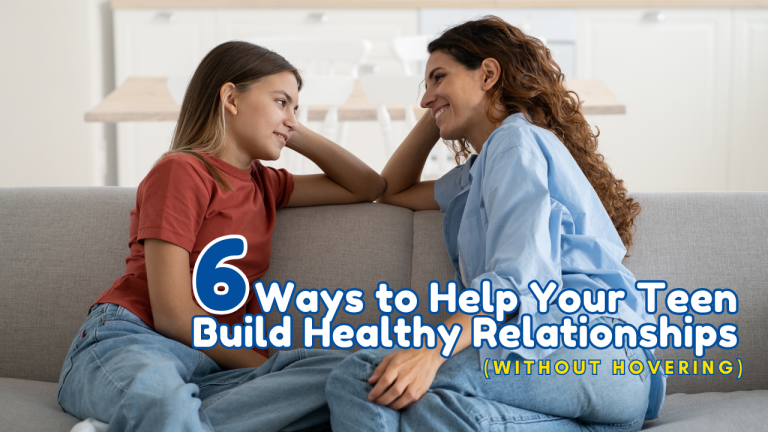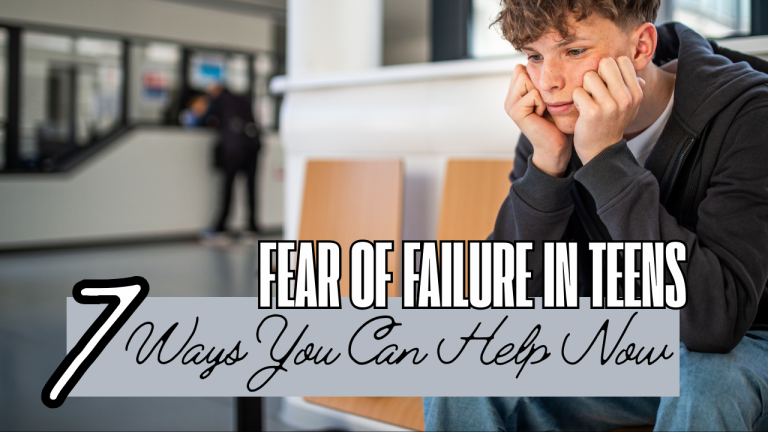There is a secret remedy to almost every life problem.
It is known to heal sickness, wipe away depression, and increase overall life success.
It’s free, and you can start using this powerful tool—Right. Now. Even better, you can help your teen transform their life by modeling it for them and teaching them how to use it.
It’s found in countless verses throughout the Bible, including 1 Thessalonians 5:16, which says, “Rejoice always, pray continually, give thanks in all circumstances, for this is God’s will for you in Christ Jesus.”
That’s right. The powerful tool that can change almost anything is gratitude.
If your teen is struggling with depression, low mood, anger, academic trouble, or any other challenge, one of the tools in your parenting toolbox is helping your teen learn to practice gratitude.
Here, we’re sharing the surprising benefits of gratitude in a teen’s life and how you can teach your teen how to practice gratitude every day.
1. Gratitude Improves Mental Health and Well-Being
Studies have shown that teens who regularly practice gratitude experience higher levels of happiness and lower levels of depression and anxiety. One study found that grateful teens had 13% fewer symptoms of depression and 15% more satisfaction with their lives compared to their less grateful peers.
Philippians 4:6-7 says, “Do not be anxious about anything, but in every situation, by prayer and petition, with thanksgiving, present your requests to God. And the peace of God, which transcends all understanding, will guard your hearts and your minds in Christ Jesus.”
Our thoughts are a driving force behind our moods and beliefs. Gratitude will bring peace to a troubled mind and turn our thoughts toward uplifting and encouraging things.
As most of us know, this doesn’t come naturally! We have to work at guarding our hearts and minds and foster an attitude of gratitude.
2. Gratitude Increases Academic Performance
It should be no surprise that gratitude is also a performance enhancer!
Grateful teens tend to have better academic performance. Research indicates that students who practice gratitude report higher GPAs, better school satisfaction, and more engagement in school activities.
Students who have a grateful mindset tend to be more engaged and motivated when it comes to schoolwork. They also appreciate the learning process and are more likely to press through when things get tough academically.
3. Gratitude Enhances Social Relationships
This should come as no surprise, but grateful people are more likable!
Teens who express gratitude are more likely to form and maintain supportive and meaningful friendships. That is largely because most teens struggle with a deeply negative outlook on life. A peer with a positive and grateful outlook will stand out like a shining star, and others will be drawn to them.
If teens realize that gratitude will make them more likable to their peers, they will likely want to learn how to practice this important state of mind!
4. Gratitude Improves Physical Health
Countless studies have found that those who practice gratitude regularly are healthier than those who tend to be negative, cynical, or complain often.
The way we think impacts our physical health significantly. Gratitude is a major health boost for teens!
Teens who are grateful also tend to exercise more and eat healthier. They also experience far fewer headaches and stomachaches. A study at UC Berkeley found that gratitude also strengthens the immune system and improves sleep. And we know good sleep greatly impacts a teen’s mood!
5. Gratitude Strengthens Coping Skills
Most teens struggle to cope with the stresses of life and maturing into young adults. Peer pressure, academic and activity pressure, and rampant insecurities can be overwhelming for teens, often causing anxiety and depression.
Because practicing gratitude encourages a positive outlook on life, it also helps teens build resilience and better cope with stress. Grateful teens are better equipped to handle setbacks and recover more quickly from difficult or challenging situations.
Learning to appreciate what they have and the experiences around them will begin to supersede anything that might otherwise seem stressful.
6. Gratitude Prompts Better Attitudes and Behaviors
It’s no surprise that gratitude is linked to more positive behaviors and attitudes, which most parents of teens would like to see! Grateful teens are less likely to engage in risky behaviors and have a more positive outlook on life. They experience reduced anxiety and lower stress levels than their ungrateful counterparts.
So, we’ve covered the benefits; now comes the challenging part—convincing your teen to put in the effort!
Tips for Helping Your Teen Develop Gratitude
Even if your teen doesn’t seem interested in cooperating at first, don’t give up!
1. Make it practical
Show your teen that gratitude doesn’t happen overnight but takes a daily effort—not only for teens but for all of us!
You can make it practical by offering some ideas of simple and doable actions your teen can take every day.
2. Purchase a Gratitude Journal
Any journal will do; if your teen is willing to pick out their own, that’s even better! Try to make it a journal that reflects their personality. If you have a teen girl who likes bling, find the most blinged-out journal you can. If your son is into a certain sports team, find a branded journal or find one that is leather-bound and super masculine looking.
Share a few quick tips on how to use the journal. Start by encouraging your teen to write down three things they’re grateful for every night before they go to bed. Resist the temptation to make this a long conversation. That might turn your teen off to the whole idea. Get in with quick tips and get out. Let this be a private process for your teen.
3. Write Thank You Notes
Encourage your teen to write or text people who they appreciate in their lives. It might be a grandparent, a coach, or a friend. Let them know that simply sending a note of thanks will help them to feel a burst of happiness and calm and give someone else a boost, too!
4. Pray With Thanksgiving
If your teen doesn’t know the power of thanksgiving in prayer, share the story of Paul and Silas!
In Acts 16:25, we learn that Paul and Silas were thrown into prison with no hope of release. They had been beaten and were in bad shape in a prison that was far worse than anything we have in the U.S.
What did they do? Verses 25-26 say, Paul and Silas were praying and singing hymns to God, and…. all the prison doors flew open, and everyone’s chains were loosed.”
Thanksgiving set them free! The same is true for us.
This is the most impactful of all. When we take time to thank God for everything we have, we go free from fear, anxiety, stress, rejection, and every other negative thought.
Encourage your teen to thank God every morning for everything they can think of—their family, home, food to eat, clothes to wear, the birds, the trees, their favorite snack or drink—anything that comes to mind.
In conclusion, when you share the benefits of gratitude with your teen and provide some practical ways to be grateful, get ready to see a difference in your teen! Above all, be sure you model gratitude in your own life. Check yourself when you hear complaining instead of praising, and set a new tone in your home—a tone of gratitude!








